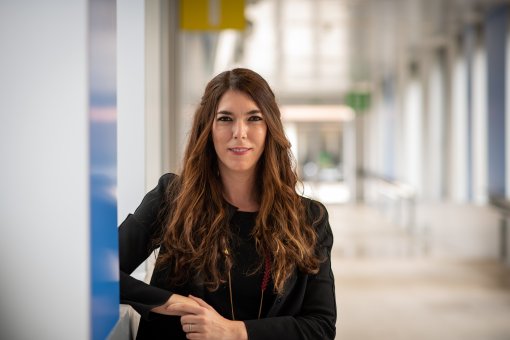Images
Contact

The researcher Jordi Casanova publishes an essay on how science today can help us to understand that way we are.
Jordi Casanova, biologist and researchers at the Institute for Research in Biomedicine (IRB Barcelona), has published Petita historia dels humans (A brief history of mankind)(Pequeña historia de los humanos Edicions La Campana, 2009, in Catalan), a series of reflections about how the new and continual scientific breakthroughs is making us reconsider many of the preconceptions we have about ourselves and about the world around us. In a little over one hundred pages, written clearly and in a friendly tone, the author explains how successive scientific knowledge is conditioning the way we perceive the nature, ethics and evolution of our society.
"Every day brings more information about human nature. Scientific knowledge, and especially that relating to biology, is allowing us to discover what we are like, how we work and the directions open to our species in the future; a fragile, highly complex species which has so many resources at its disposal", explains Casanova.
Petita historia dels humans is organized into 24 chapters which address universal, and often controversial, issues such as whether mankind today is on the last rung of the evolutionary ladder, the meaning of life and death, animal rights, the imposition of the goodness of what is natural over what is artificial, and the abuse and misuse of the word science.
Regarding how the idea of the book came to mind, Jordi Casanova explains, "is common for me to meet up with others and because I am a biologist we often end up of discussing the most recent scientific breakthroughs and their consequences in an after-meal conversation. Some time ago and coinciding with convalescence, a friend suggested that I write down these reflections, and I finally did just that. This collection of thoughts will be a good way to prepare new debates."
Jordi Casanova i Roca
Biologist, born in Barcelona 1959. After obtaining his PhD from the "Universidad Autónoma de Madrid", he spent a post-doc period at Colombia University in New York. Currently, he holds a researcher position at the "Consejo Superior de Investigaciones Científicas" (Spanish Research Council) and heads a group at the Institute for Research in Biomedicine (IRB Barcelona). He has published numerous articles in leading international journals in his field and is a member of the European Molecular Biology Organisation (EMBO). His research addresses the way in which genes regulate development in humans. He is the father of three adolescent children who have not opted to study science. Consequently, he has devoted much time and effort to informing them so as to enable them to discuss biology and its implications.
About IRB Barcelona
The Institute for Research in Biomedicine (IRB Barcelona) pursues a society free of disease. To this end, it conducts multidisciplinary research of excellence to cure cancer and other diseases linked to ageing. It establishes technology transfer agreements with the pharmaceutical industry and major hospitals to bring research results closer to society, and organises a range of science outreach activities to engage the public in an open dialogue. IRB Barcelona is an international centre that hosts 400 researchers and more than 30 nationalities. Recognised as a Severo Ochoa Centre of Excellence since 2011, IRB Barcelona is a CERCA centre and member of the Barcelona Institute of Science and Technology (BIST).




